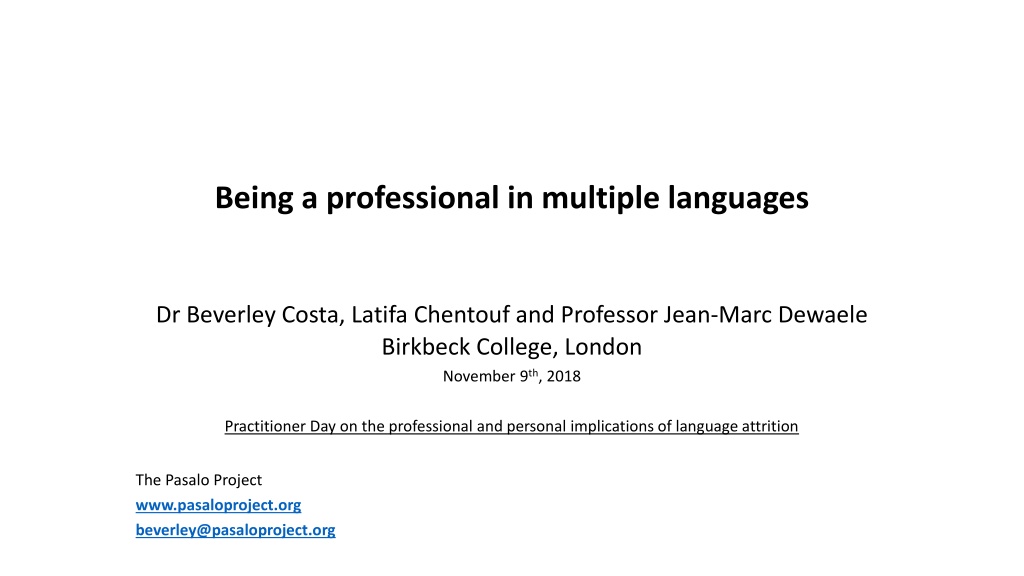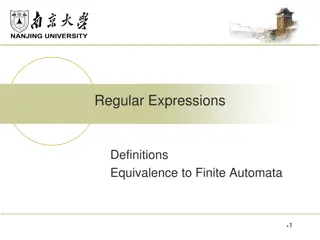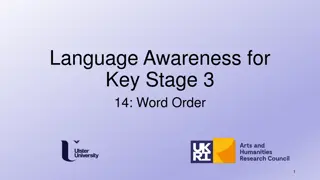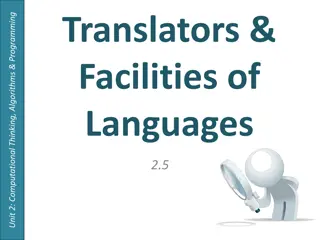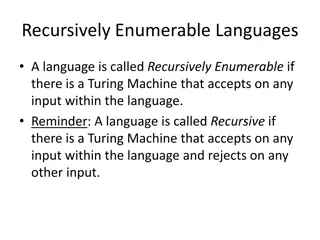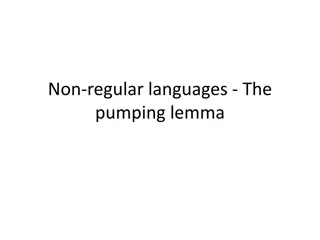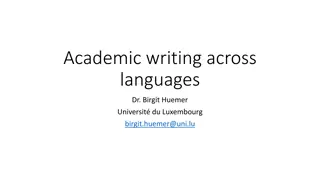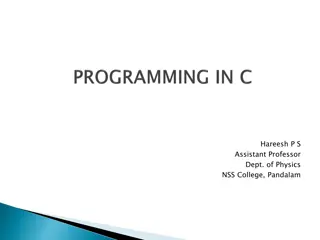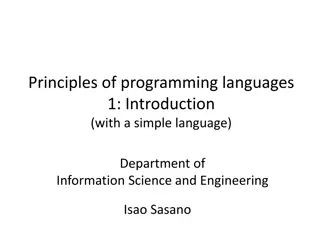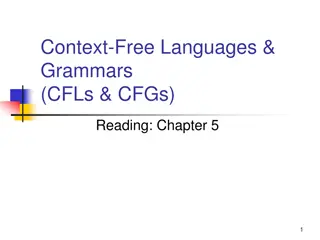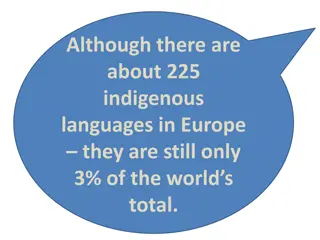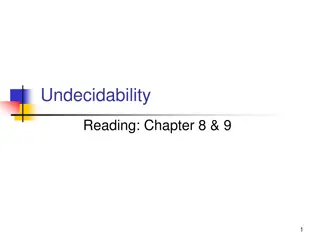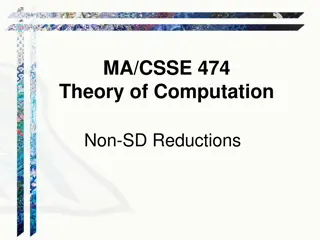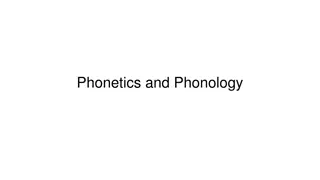Being a professional in multiple languages
Study on language attrition, cultural counseling services, and multilingual therapy by professionals from Birkbeck College, London. Discover the impact of multilingualism on multicultural identity, attitudes of therapists towards multilingual patients, and the benefits of therapy in patients' preferred languages.
Download Presentation

Please find below an Image/Link to download the presentation.
The content on the website is provided AS IS for your information and personal use only. It may not be sold, licensed, or shared on other websites without obtaining consent from the author.If you encounter any issues during the download, it is possible that the publisher has removed the file from their server.
You are allowed to download the files provided on this website for personal or commercial use, subject to the condition that they are used lawfully. All files are the property of their respective owners.
The content on the website is provided AS IS for your information and personal use only. It may not be sold, licensed, or shared on other websites without obtaining consent from the author.
E N D
Presentation Transcript
Being a professional in multiple languages Dr Beverley Costa, Latifa Chentouf and Professor Jean-Marc Dewaele Birkbeck College, London November 9th, 2018 Practitioner Day on the professional and personal implications of language attrition The Pasalo Project www.pasaloproject.org beverley@pasaloproject.org
Mothertongue multi-ethnic counselling service Mothertongue multi-ethnic counselling service www.mothertongue.org.uk is a UK based NGO which offers free, culturally and linguistically sensitive counselling for people from black and minority ethnic communities in their preferred languages. We were established in 2000 and we are closing in 2018 Since 2009 we have run a dedicated Mental Health Interpreting Service which is funded by the local Health Authority. Began research into multilingualism and therapy because of gaps in the literature, in collaboration with Jean-Marc Dewaele Developed training and supervision programmes for therapists in multilingual therapy based on the research findings Continuing this strand of Mothertongue s work with new organization: Pasalo: www.pasaloproject.org
Research on multilingualism and therapy A study by Professor Jean-Marc Dewaele, Birkbeck, University of London and Dr Beverley Costa investigated beliefs, attitudes and practices of 101 monolingual and multilingual therapists in their interactions with multilingual patients Costa, B. & Dewaele, J.M. (2012) Psychotherapy across Languages: beliefs, attitudes and practices of monolingual and multilingual therapists with their multilingual patients, Language and Psychoanalysis: http://www.language-and- psychoanalysis.com/ -
Questionnaire: 1 statement I feel that switching between languages reflects a unique multicultural identity. Monolingual Agree 37% Disagree 5% Multilingual Agree 59% Disagree 8%
Additional data from interviews Multilingual Therapists Attunement v Collusion Multilingual Therapist 2 (M2): There is a kind of a familiarity that they (patients) experience with me, that probably they wouldn t with a (native) English speaker or through an interpreter We know nobody else understands us, it s only us probably more private, less threatening, less stressful, more relaxed.
Additional data from interviews Multilingual Therapists Attunement v Collusion Multilingual Therapist 1 (M1): I think that if you have to learn various languages you become much more attuned to what the other person is saying, to try to understand, because you know what it s like to be a foreigner or in a foreign situation, so you can make that effort and you can be more flexible. (Patients also have) to adapt much more and be more flexible. You are more attuned to whether people understand or don t understand. If I feel they re not understanding. I ll try to get my point across in a different way
Limitations of therapy training M1: Well, when I was thinking about coming to do this interview, I wondered whether I wasn t really a fraud, because although I do speak various languages, I ve always been trained in only one, so when I tried to, even when people in Switzerland ask me about the kind of therapy I do, I find it incredibly difficult to explain, because I ve never picked up a French textbook about CBT.
Other research on multilingual therapists experiences of using different languages in their professional lives e.g. Spanish-English Bilingual Psychotherapists: Personal and Professional Language Development and Use Verdinelli, S. and Biever, J.L. (2009).. Cultural Diversity and Ethnic Psychology. 15 (3): 230-242. The study examines the experiences of 13 Spanish English bilingual therapists, both native Spanish speakers and heritage speakers of Spanish, in their personal and professional language development and use.
Some of the issues identified from research participants No terms or appropriate language Client expectations from the relationship Concern about taking things too fast Finding one s professional identity in another language Feeling a fraud in another language Identification and over-identification (Nguyen, 2014) Maintaining their professional footing when working in a shared other language Nostalgic collusion (Akhtar, 2006) Managers expectations and the realities of working professionally in multiple languages
Which language owns you? You drink a language, you speak a language, and one day it owns you: and from then on, it falls into the habit of grasping things in your place, it takes over your mouth like a lover s voracious kiss. The Meursault Investigation by Kamel Daoud, 2015 (transl. John Cullen), Oneworld Publications
Alison Phipps: Decolonising Multilingualism. Bristol. Multilingual Matters 2019 p.28: Something substantial has to be risked, some threshold has to be crossed into something which is not knowable, until one is over on the other side for decolonising to happen, however temporary it may be
Exercise You are a professional in Health/Social care (choose the profession you wish to be). You were born in the UK. Your family migrated to the UK from India before you were born. You learned to speak both Punjabi and English at an early age. Your client is an L1 Punjabi speaker and you work with him in Punjabi. You are aware that your Punjabi and your accent are a bit Brit and you are already sensitive about this. Your client starts to get annoyed with your inability to understand all he says, or for you to find the right words in Punjabi. He can t always understand you.(He says your accent is terrible). How do you manage this situation in a way that is useful for you both?
Suggested Reading Boyles, J. (2017) Psychological therapy with torture survivors in exile; a human rights approach PCCS Books Burck, C. (2005). Multilingual Living: Explorations of Language and Subjectivity. London: Palgrave Costa, B. & Dewaele, J.-M. (2012). Psychotherapy across languages: beliefs, attitudes and practices of monolingual and multilingual therapists with their multilingual patients. Language and Psychoanalysis Vol. 1, pp. 18-40; [reprinted in (2013) Counselling and Psychotherapy Research, http://dx.doi.org/10.1080/14733145.2013.838338] Costa, B. & Briggs, S. (2014) Service-users experiences of interpreters in psychological therapy: a pilot study International Journal of Migration, Health and Social Care, 10:4 , 231-244 DOI 10.1108/IJMHSC-12-2013-0044. Costa, B. (2014) Counselling in many tongues. Therapy Today Vol. 25/4, 20 -23 Costa, B. (2014) You can call me Betty. Healthcare Counselling and Psychotherapy Journal Vol. 14/4 Dewaele, J-M., Costa, B. (2013) Multilingual Clients Experience of Psychotherapy Language and Psychoanalysis, 2013, 2 (2), 31-50 http://dx.doi.org/10.7565/landp.2013.0005 Costa, B. (2017) Team Effort training therapists to work with interpreters as a collaborative team International Journal for the Advancement of Counselling, 39(1), 56-69. DOI:10.1007/s10447-016-9282-7 Costa,B. (2017) How can mental health services work effectively across languages? http://www.rcpsych.ac.uk/pdf/APPTS%20Newsletter%20Issue%2004%20- %20December%202017.pdf#zoom=80,0,0 Costa, B. & Dewaele, J-M. (2018) The talking cure building the core skills and the confidence of counsellors and psychotherapists to work effectively with multilingual patients through training and supervision. Counselling and Psychotherapy Research. 2018;00:1 10. https://doi.org/10.1002/capr.12187 Costa, B. (2018) Why do their languages matter? BACP Children, Young People & Families, June 2018. Lutterworth:BACP Rolland, L., Dewaele, J.-M., & Costa, B. (2017) Multilingualism and psychotherapy: exploring multilingual clients' experiences of language practices in psychotherapy, International Journal of Multilingualism. Advance online publication: http://dx.doi.org/10.1080/14790718.2017.1259009. Ryde, J.: Marianne Fry lecture, 2009. White Identity in Psychotherapy: Can dialogic, intersubjective psychotherapy help white people work more effectively in a racialized context?
